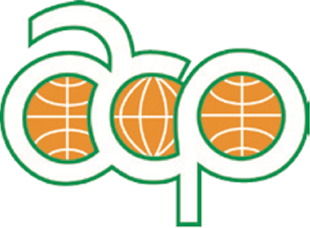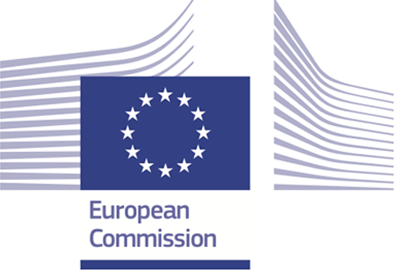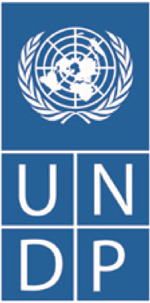The third edition of the World Reconstruction Conference (WRC3) took place in Brussels from June 6-8, 2017. Co-organized by the World Bank’s Global Facility for Disaster Reduction and Recovery, the European Union, the United Nations Development Programme and the African, Caribbean and Pacific Group of States, the conference sought to promote resilience through post-crisis recovery. WRC3 was held in conjunction with European Development Days 2017.
Follow us:
@GFDRR #WRC3 #buildbackbetter
Download the conference app on
Overview
Venue:
Square: Brussels Meeting Centre, Brussels, Belgium, June 6-8, 2017
Goal: To identify effective and forward-looking approaches to achieve resilient post-crisis recovery in which climate and disaster risk reduction, fragility and conflict considerations are mainstreamed.
Objectives:
- Strengthen the discourse on recovery by focusing on demand for better recovery systems ex-ante
- Promote practices leading to resilient recovery and enhance global knowledge resources
- Build capacity for disaster risk reduction in recovery and reconstruction
Despite ongoing and expanding efforts to minimize hazard impacts through disaster risk reduction, the recovery function following disasters is increasingly recognized as a relevant and necessary area of focus. As climate change, urbanization and migration accelerate, the need for resilient recovery is expected to continue on an upward trajectory. For instance, from 2012 to 2014, 994 disasters impacted more than 326 million people across the globe.1 Costs of physical damage caused by these events are also rising -- from an estimated US$20 billion on average per year in the 1990s to about US$100 billion per year in the first decade of this century.2
The 2015 Sendai Framework for Disaster Risk Reduction includes as Priority 4 a focus on “build back better in recovery, rehabilitation and reconstruction,”3 which reflects the strong advocacy efforts undertaken by the World Bank Group (WBG), United Nations Development Programme (UNDP), European Union (EU) and other partners. Build Back Better (BBB) provides an important premise for engagement of all national governments, UN system and multilateral agencies to implement recovery in a transformative manner that reduces risks and builds resilience in an increasingly complex world of multiple and colliding risks.
With this in mind, the third edition of the World Reconstruction Conference (WRC3) aims to promote resilience through post-crisis recovery, as evidenced by the Sendai Framework’s Priority 4. Co-organized by the World Bank’s Global Facility for Disaster Reduction and Recovery, the European Union, the United Nations Development Programme and the African, Caribbean and Pacific Group of States, the conference builds on the success of the first two WRCs held in 2011 in Geneva and 2014 in Washington. WRC3 is held in conjunction with European Development Days 2017.
Participants: Over 500 experts and practitioners from governments, international organizations, NGOs, academia, and the private sector are expected to share their best practices and lessons on recovery and explore the nexus between resilient recovery efforts and sustainable poverty reduction.
Thematic Areas: Recovery interventions; Recovery in conflict and fragile situations; Recovery preparedness; Leveraging political consensus on Sendai Priority 4.
Click here to read the full concept note.
1 Centre for Research on the Epidemiology of Disasters (CRED). 2014. Annual Disaster Statistical Review 2013: The numbers and trends. Institute of Health and Society (IRSS) Université Catholique de Louvain – Brussels, Belgium.
2 Natural Disasters: Mitigating Impact, Managing Risks, IMF (2012).
3 Build Back Better: The use of the recovery, rehabilitation and reconstruction phases after a disaster to increase the resilience of nations and communities through integrating disaster risk reduction measures into the restoration of physical infrastructure and societal systems, and into the revitalisation of livelihoods, economies, and the environment.
Preliminary Agenda
TUESDAY, JUNE 6, 2017|The Square, Brussels Meeting Centre
| 8:00–9:00 | REGISTRATION Registration Hall BREAKFAST Copper Foyer and Hall 100 |
|||||
| 9:00-10:30 | OPENING CEREMONY: Promoting Resilience through Post-Crisis Recovery Copper Hall |
|||||
| 10:30-11:00 | COFFEE BREAK Breakfast at Copper Foyer and Hall 100 |
|||||
| 11:00-12:30 | Special Session: An Update from 2017 Global Platform for Disaster Risk Reduction Room 211 |
Lessons and Ways Forward after a Decade of Experience with PDNAs Copper Hall |
Better Risk Financing Analytics for Better Recovery Financing Room 212 |
Linking Humanitarian Response and Recovery: Advancing the New Way of Working Room 213 |
Building Regulations and Standards for Long-term Resilience Room 214 |
Livelihood Recovery and Social Protection Room 215 |
| 12:30-14:00 | LUNCH Hall 400 & Panoramic Hall |
|||||
| 14:00-15:30 | PLENARY: Efforts on Post-Disaster Recovery Copper Hall |
|||||
| 15:30-16:00 | COFFEE BREAK Copper Foyer and Hall 100 |
|||||
| 16:00-17:30 | Special Session: Post-Earthquake Recovery in Nepal Copper Hall |
From Urban Reconstruction towards Resilient Cities Room 211 |
Innovation in Remote Post-Crisis Assessments and Recovery Monitoring Room 212 |
Environment in Recovery, Focus on Waste Management Room 213 |
Enhancing Climate and Disaster Resilience in the Context of Build Back Better Room 214 |
|
| 18:00- 20:00 | RECEPTION Bozar Art Gallery |
|||||
WEDNESDAY, JUNE 7, 2017|The Square, Brussels Meeting Centre
| 8:00–9:00 | BREAKFAST Copper Foyer and Hall 100 |
|||||
| 9:00-10:30 | PLENARY: Rethinking Reconstruction and Recovery in Conflict Settings Copper Hall |
|||||
| 10:30-11:00 | COFFEE BREAK Copper Foyer and Hall 100 |
|||||
| 11:00-12:30 | Build Back Better with and for Women Room 211 |
Private Sector as a Key Partner in Preparedness, Response and Recovery Room 211 |
Towards Coordinated Efforts for Sustainable Solutions to Food Crises: The Role of teh Global Report on Food Crises 2017 Room 212 |
Development Solutions for Human Mobility in Situations of Fragility Room 213 |
Conflict Sensitivity in Recovery Room 214 |
Civil Protection as a Pillar for Disaster Resilience Room 215 |
| 12:30-14:00 | LUNCH Hall 400 and Panoramic Hall |
|||||
| 14:00-15:30 | PLENARY: Preparing and Planning for Recovery - Strengthening Institutions and Capacities Copper Hall |
|||||
| 15:30-16:00 | COFFEE BREAK Copper Foyer and Hall 100 |
|||||
| 16:00-17:30 | Policies and Institutional Arrangements for Recovery Copper Hall |
Cultural Heritage Reconstruction - an Engine for Social Recovery Room 211 |
Large Scale Housing Reconstruction - Latest Experiences Room 212 |
Recovery in Fragile and Conflict-Affected Situations |
Engaging Local Stakeholders for Resilient Recovery Room 214 |
Somalia - Drought Recovery as an Opportunity for Resilience Building |
THURSDAYJUNE 8, 2017|Tour & Taxi, Brussels
| 7:00–8:30 | Transportation to the European Development Days (EDD 2017) Venue, Registration and Breakfast Meeting in front of The Square, Brussels Meeting Center |
|||||
| 9:30-10:15 | EDD 2017 Lab Debate: What Can We Do to Make Recovery Resilient? Conference Room D4 |
|||||
| 14:30-16:00 | CLOSING CEREMONY (Auditorium 3): Leveraging Political Consensus on Promoting Resilience through Post-Crisis Recovery Auditorium 3 |
|||||
Final Reports
Photos
Photos from WRC3 via blueclic.com
Photos from events at the European Development Days, including Lab Debate and the Closing Ceremony.
Published Blogs and Op-Eds
June 6: 'Fixing' disaster recovery
June 6: Op-ed by Jo Scheuer and Francis Ghesquiere (Reuters)
May 15: Keeping children safe in disaster-prone Kyrgyzstan (EU-ECHO)
May 22: Supporting Cuba through the drought of the century (EU-ECHO)
May 23: Nepal: A path to recovery (EU-ECHO)
June 8: Why prepare for disaster recovery? (UNDP)
Closing Video






